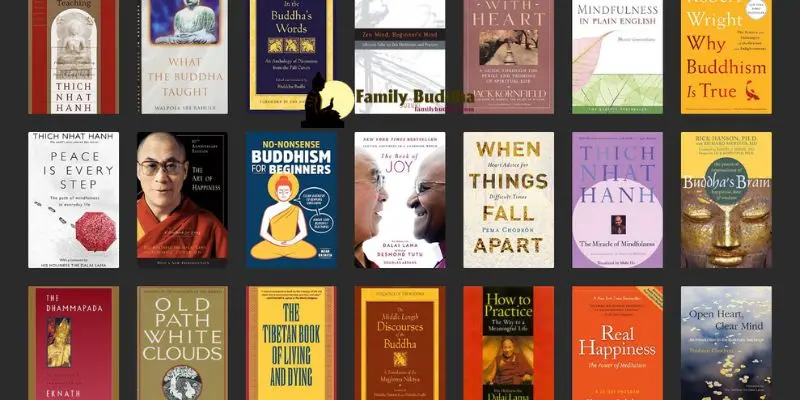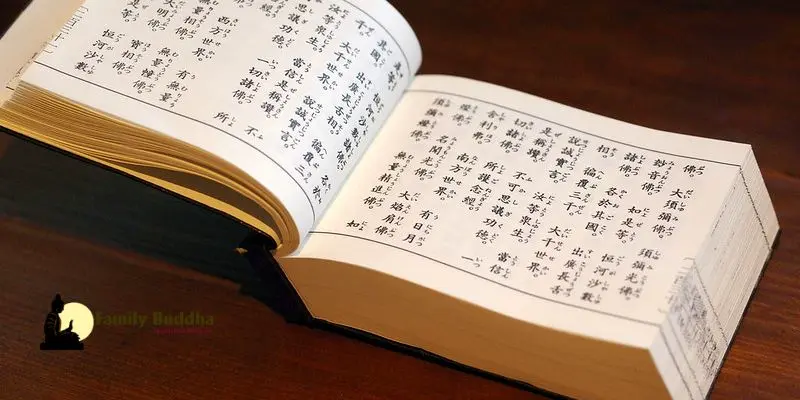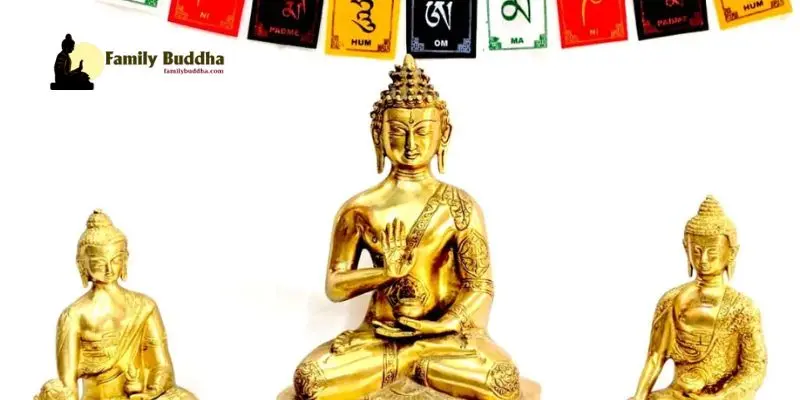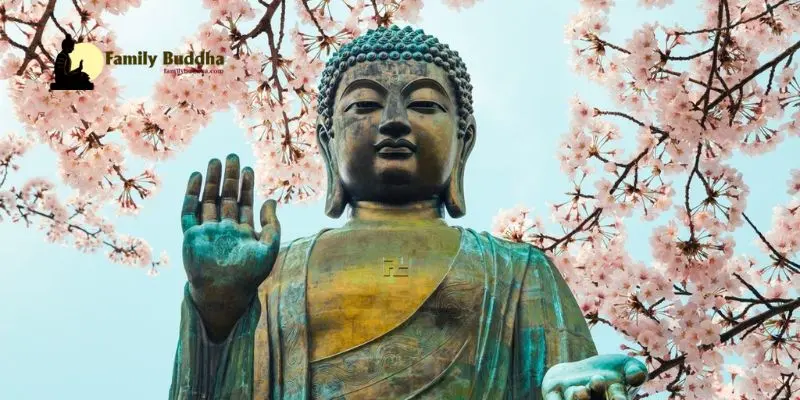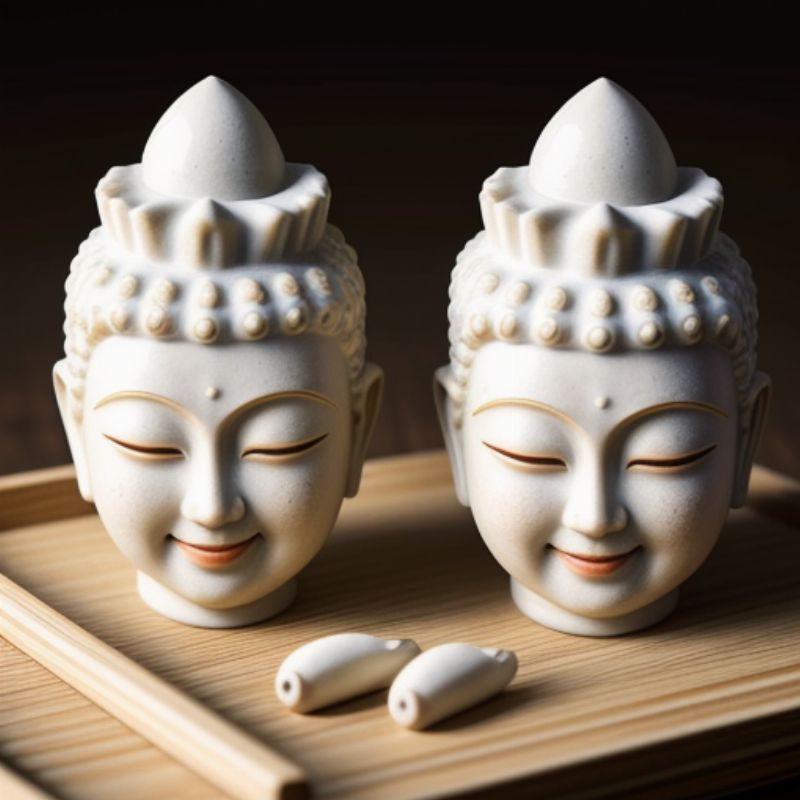Which Buddhist texts should newcomers explore to deepen their understanding of Buddhism? This commonly posed inquiry is addressed in this article, which presents the best Buddha books for beginners, offering perspectives from various traditions and delving into advanced topics. Let’s discover at Familybuddha now!
Best Buddha books for beginners
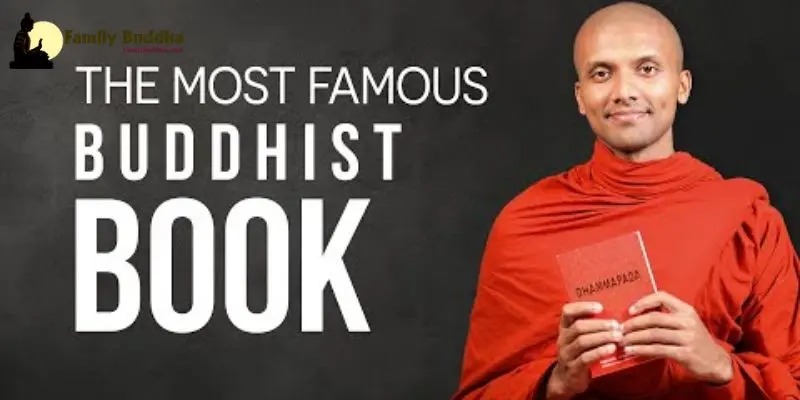
“What the Buddha Taught” by Walpola Rahula
“What the Buddha Taught” by Walpola Rahula is perhaps the most widely read introductory book on Buddhism. This concise and lucid text spans approximately 100 pages, offering a clear exposition of key Buddhist concepts such as the Four Noble Truths, the Noble Eightfold Path, meditation, and more.
For those completely new to Buddhism, this book serves as an ideal starting point, providing a foundational understanding that enables readers to navigate the vast terrain of Buddhist philosophy. Whether you’re seeking to form a mental framework of Buddhism or simply exploring the teachings to discern your interest, this book is an excellent choice.
“With Each and Every Breath” by Thanissaro Bhikkhu
“With Each and Every Breath” by Thanissaro Bhikkhu is a meditation guidebook that holds significance for Buddhists as it aids in fortifying and soothing the mind, while also facilitating progress along the path to enlightenment and Nirvana.
In essence, this book serves as a comprehensive guide to meditation, drawing upon the foundational teachings of the Buddha and subsequent Buddhist scholars who expanded upon his wisdom. What distinguishes this text is its remarkable accessibility and its emphasis on breath meditation, known as anapanasati.
Beyond the ultimate aims of enlightenment and nirvana, breath meditation cultivates mindfulness in daily life, offering practical benefits to practitioners. This aspect renders it a valuable practice for individuals who may not wish to delve deeply into the complexities of Buddhism but seek to enhance their well-being and presence of mind.
“Mindfulness in Plain English” by Henepola Gunaratana
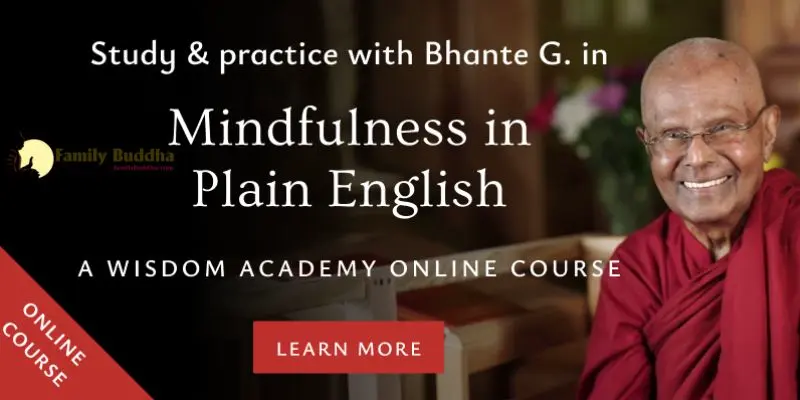
“Mindfulness in Plain English” by Henepola Gunaratana is another notable book centered on meditation within the realm of Buddhism. Renowned as one of the most accessible introductory texts on Buddhism, it seamlessly blends explanations on the importance of meditation (“why”) with practical guidance on its implementation (“how”). Through the author’s captivating writing style, readers are guided through both the theoretical and practical aspects of meditation.
While “With Each and Every Breath” focuses primarily on breath meditation, known as anapanasati, “Mindfulness in Plain English” delves deeper into the practice of vipassana. In Buddhist philosophy, vipassana is revered as the profound insight into the true nature of reality and the interconnectedness of all phenomena.
Anapanasati comprises 16 stages, with each stage marking a progression towards heightened self-awareness and mastery for the meditator. Vipassana meditation represents the culmination of the anapanasati practice. Therefore, rather than being distinct entities, vipassana and anapanasati are interconnected, with one serving as the pinnacle of the other.
“The Tibetan Book of Living and Dying” by Sogyal Rinpoche
“The Tibetan Book of Living and Dying” by Sogyal Rinpoche is firmly rooted in the Tibetan Vajrayana Buddhist tradition, as indicated by its title. This profound text delves deeply into the cycle of life, death, and rebirth, offering insights accessible even to beginners.
Central to its teachings is an exploration of the post-death journey of the mind and the pivotal role it plays in either attaining liberation or undergoing rebirth. It serves as a guide for navigating these experiences with clarity and wisdom.
Covering fundamental Buddhist themes such as impermanence, the nature of the mind, meditation, karma, and reincarnation, as well as the moment of death, this book presents a perspective that contrasts with the Western philosophical tradition. It offers a unique perspective on existence beyond life, enriching readers’ understanding with its profound insights.
“The Eight Gates of Zen” by John Daido Loori

“The Eight Gates of Zen” by John Daido Loori is a profound exploration of Zen Buddhism, a branch widely recognized in the Western world and often synonymous with Buddhism itself.
Originating in China as a subschool of Mahayana Buddhism, Zen integrates traditional Buddhist principles with elements from Chinese philosophy, particularly Taoism.
Despite its Western popularity, the term “Zen” has undergone significant distortion. Its roots trace back to the Indian word “dhyana,” which entered Chinese as “chan” and eventually became “zen” in Japanese, all translating to “meditation.”
What distinguishes Zen Buddhism is its emphasis on meditation, particularly through the use of unsolvable riddles and thought-provoking exercises known as koans. These koans serve to redirect the mind’s focus, fostering a sense of calm and relaxation.
“The Eight Gates of Zen” serves as an accessible introduction to Zen Buddhism, catering to Western sensibilities as the author himself hailed from the West. It comprehensively covers koan meditation and other fundamental aspects of Zen practice.
Canon Buddhist texts and writings
The teachings of the Buddha are preserved in a collection known as the Sutta Pitaka, which constitutes a significant portion of the Canon Buddhist texts. The Sutta Pitaka is further divided into five volumes, or nikayas, categorized based on the length of the discourses.
Among these nikayas, the long and medium-length discourses are particularly accessible for beginners. While the remaining three volumes contain valuable content, they delve into more technical subjects and often exhibit repetitive themes.
Conclusion
n conclusion, exploring the world of Buddhism through literature can be a transformative journey for beginners seeking wisdom and understanding. The best Buddha books for beginners offer accessible insights into fundamental teachings, meditation practices, and philosophical concepts. Whether you’re taking your first steps into Buddhism or deepening your existing practice, these books offer invaluable resources to support and inspire you along your journey.
It’s advisable to approach these advanced volumes once you have a firm grasp of the foundational teachings and find yourself grappling with deeper questions about Buddhism.

